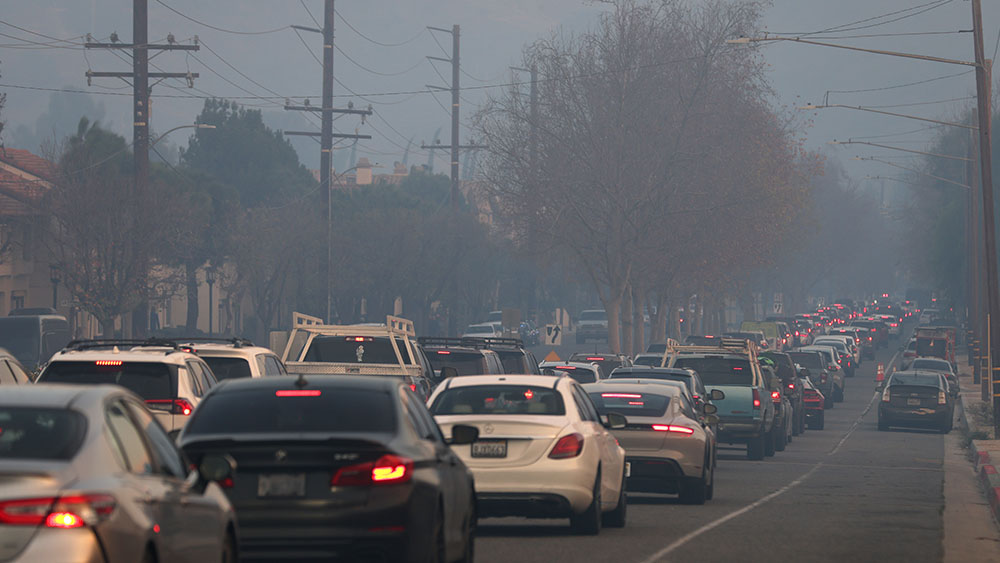 Parler
Parler Gab
Gab
- A UN report warns terrorists could hijack autonomous vehicles, turning them into AI-powered weapons for mass casualty attacks without risking operatives.
- Security experts rate the likelihood of such attacks as "moderate to high" within 5 to 10 years, urging immediate action.
- Terrorists may use hacked AVs to replicate traditional vehicle attacks like rampages or bombs remotely, eliminating the need for suicide operatives.
- Autonomous vehicles' advantages could be weaponized for swarm attacks or infrastructure sabotage, overwhelming emergency responses.
- The UN calls for global cooperation to prevent AI misuse, stressing the need for proactive defense before terrorists exploit advancing technology.
The rise of AI-enabled terrorism
The UN Office of Counter-Terrorism stated: “Vehicles, particularly cars, vans and trucks, have long been used in terrorist attacks. Reflecting on the extensive history of terrorism and vehicles, increased autonomy in cars could well be an amenable development for terrorist groups, allowing them to effectively carry out one of their most traditional types of attacks remotely, without the need for a follower to sacrifice his or her life or risk being apprehended.” This isn’t speculative fiction; it’s a dark reality being shaped by the unchecked proliferation of AI-driven transportation. The report underscores how terrorists, historically reliant on vehicle-based attacks (from truck rampages to car bombs), could now orchestrate devastation from afar, leveraging hacked autonomous systems to strike with precision and scale. William Allchorn, a senior research fellow at the International Policing and Public Protection Research Institute, told The Times: “The likelihood of co-ordinated attacks using hijacked or self-made AVs [autonomous vehicles] in the near future, i.e., five to ten years, is moderate to high and should be on the radar of all national security services and practitioners in the UK as a possible threat.” His warning echoes growing concerns among counterterrorism officials who fear AI’s dual-use potential to be beneficial in peacetime but catastrophic in malicious hands.From convenience to catastrophe
Autonomous vehicles promise to revolutionize transportation, reducing human error and traffic fatalities. Yet, as the UN report highlights, their very advantages—remote operation, networked coordination, and AI decision-making—could be inverted into tools of terror. Imagine a fleet of driverless cars commandeered by extremists, barreling into pedestrian zones or colliding with critical infrastructure. The report also warns of "swarm attacks" using drones or hijacked vehicles to overwhelm emergency responses, akin to military tactics repurposed for civilian slaughter. The threat isn’t limited to physical attacks. AI-driven vehicles rely on vast data networks, including traffic management systems and GPS, which could be sabotaged to paralyze cities. The Times notes the report’s emphasis on smart city vulnerabilities, where hackers could disrupt public transport or emergency services to amplify chaos during an attack.A call for proactive defense
The UN’s findings serve as a wake-up call: “This publication should serve as an early warning for potential malicious uses and abuses of AI by terrorists and help the global community, industry and governments to proactively think about what we can do collectively to ensure new technologies are used to bring good and not harm.” The UN’s warning is clear: the era of AI-enabled terrorism is dawning, and the window to prevent catastrophe is narrowing. Autonomous vehicles, once hailed as a pinnacle of innovation, now embody a paradox, offering both societal transformation and unprecedented vulnerability. As Allchorn notes, the threat is currently limited but escalates with each technological leap. The question isn’t if terrorists will exploit these tools, but when. Sources for this article include: YourNews.com DailyMail.co.uk TheTimes.comAssaults against ICE agents linked to hostile political rhetoric surge 500%
By Ava Grace // Share
Tehran-Tel Aviv ceasefire in jeopardy as Israel accuses Iran of missile attacks
By Ramon Tomey // Share
Iran’s resilience challenges U.S.-backed Zionism amid Global South solidarity
By Willow Tohi // Share
DHS warns of heightened cyber threats from Iran after U.S. strikes on nuclear facilities
By Cassie B. // Share
Syringe terror at French music festival: 145 stabbed, illegal migrants among suspects
By Cassie B. // Share
Texas breaks barriers with first public-funded Bitcoin reserve, driving national shift
By Willow Tohi // Share
Governments continue to obscure COVID-19 vaccine data amid rising concerns over excess deaths
By patricklewis // Share
Tech giant Microsoft backs EXTINCTION with its support of carbon capture programs
By ramontomeydw // Share
Germany to resume arms exports to Israel despite repeated ceasefire violations
By isabelle // Share










